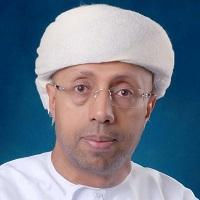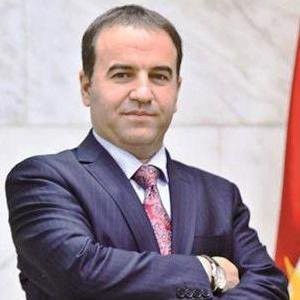LONDON
WASHINGTON DC

"Crisis Response Council is one of the most pioneering and adaptive mediation platforms I have engaged with. Through convening leading practitioners, CRC is able to generate valuable insights, cutting edge analysis and forward-looking recommendations for the most complex policy dilemmas."
Ms. Dareen Khalifa. Senior Analyst. International Crisis Group.
Mobilising
expertise across disciplines
Crisis Response is dedicated to addressing global crises through a full-spectrum approach that harnesses and mobilises expertise across disciplines.
Building networks
Crisis Response has an all-encompassing network of decision-makers, scholars and influencers who provide Crisis Response with a strategic community that underpins its attempts to achieve lasting solutions to global crises.

Brookings Institution

Carnegie Endowment

NATO

American Enterprise Institute

Former U.S. Assistant Secretary of State

American University of Beirut

Princeton University

Former UK Minister of State

Council on Foreign Relations

London School of Economics

Carnegie Corporation

German Marshall Fund

New York Times

RAND Corporation

DCAF

Iraqi Government

International Crisis Group

Brookings Institution

Atlantic Council

New America Foundation

Waseda University

Kent University

SWP

Columbia University

Harvard University

European Union

German Marshall Fund

Columbia University

Washington Institute

Russian International Affairs Council

European Union

East West Institute

Ankara Institute

CSIS

Al Arabiya English

Institute for the Study of War

New America

Iraqi Government

Robert Bosch Academy

Kurdistan Regional Government

Kurdistan Regional Government

United Nations

International Crisis Group

United States Institute for Peace

Middle East Institute

Hudson Institute

Tehran University

Washington Institute

Hikma Movement, Iraq

Brookings Institution
Our Focus
Armed Conflict
COVID-19 will most likely be a conflict-multiplier as belligerents move to intensify contestation over territories and resources, which will now include an expanded focus on securing access to vital medical supplies. The crisis is an opportunity to reinforce their reputations and consolidate their positions in the process. In other words, COVID-19 will not prompt a rallying call for a lasting peace. It is in conflict-stricken countries where the impact of the pandemic will be the most acute. Political elites, militias, and external powers engaged in proxy wars have fought fiercely over resources and territory. Crisis Response convenes policymakers to develop policies and analysis that develop conflict mitigation mechanisms.
Good Governance
Engaging local actors, civil-society and humanitarian organisations to secure sustainable development, human security and economic development is central to building inclusive and sustainable governance. Crisis Response is focused on addressing leading causes of economic and social inequality to help communities prosper and bridge the gap between the disenfranchised and decision-makers, particularly the youth and vulnerbale communities, including women and religious minorities. Crisis Response places a focus on building more accountable governing structures that enable pathways for peace-building, reconciliation and security sector reform.
Track II
Working through its Proxy Wars Initiative, Crisis Response convenes Track II dialogues in the Middle East and North Africa. Over the past two-years, it has convened workshops and roundtables in the Middle East, Europe and in the United States, where it has drawn on its expansive network of decision-makers, former officials, scholars and civil-society activists to develop conflict mitigation proposals and reconciliation frameworks focused on Libya, Iraq, Syria and Yemen, in addition to policy proposals that curtail the potential for conflict relapse and constrain the second order effects of wars to secure lasting stability and sustainable governance.
Climate Change
Climate change will exacerbate the socio-economic, geopolitical and environmental conditions that enable conflicts and violent instability. According to experts, a quarter of the world’s people face extreme water shortages that are fueling conflict, social unrest and migration. The influence of climate on conflicts will increase more than five times, leaping to a 26% chance of a substantial increase in conflict risk in the near future. Crisis Response develops regional collaboration and confidence-building measures aimed at forestalling climate related conflict and tumult, producing data and analysis that help government and non-government organisations integrate climate-focused policies and ideas into their decision-making processes and policy proposals.

"Our goal is to convene the most diverse and robust network of decision-makers, practitioners and scholars from across the globe to produce cutting-edge analysis and provide immediate policy proposals that can achieve lasting solutions to the most pressing challenges of our time."
Dr. Ranj Alaaldin. Director, Crisis Response Council
